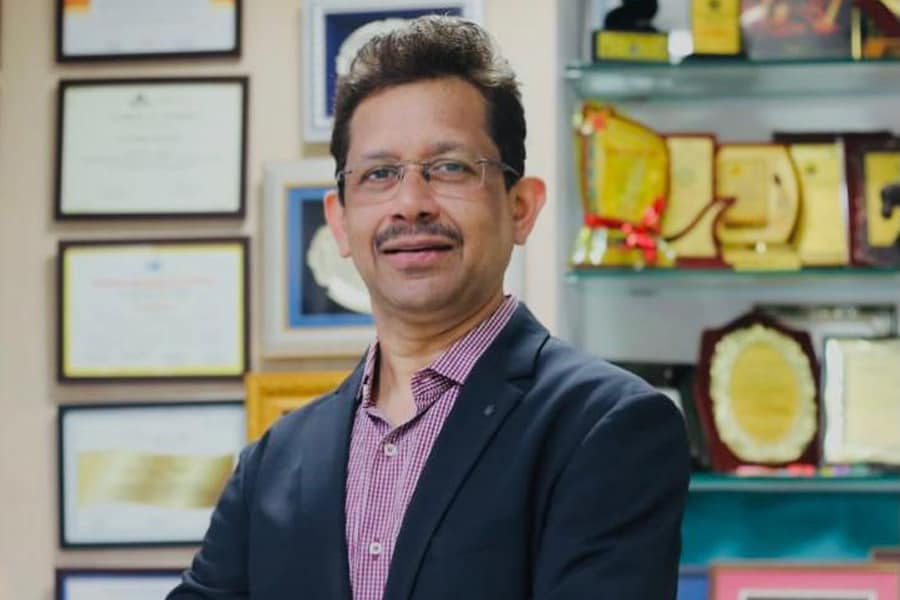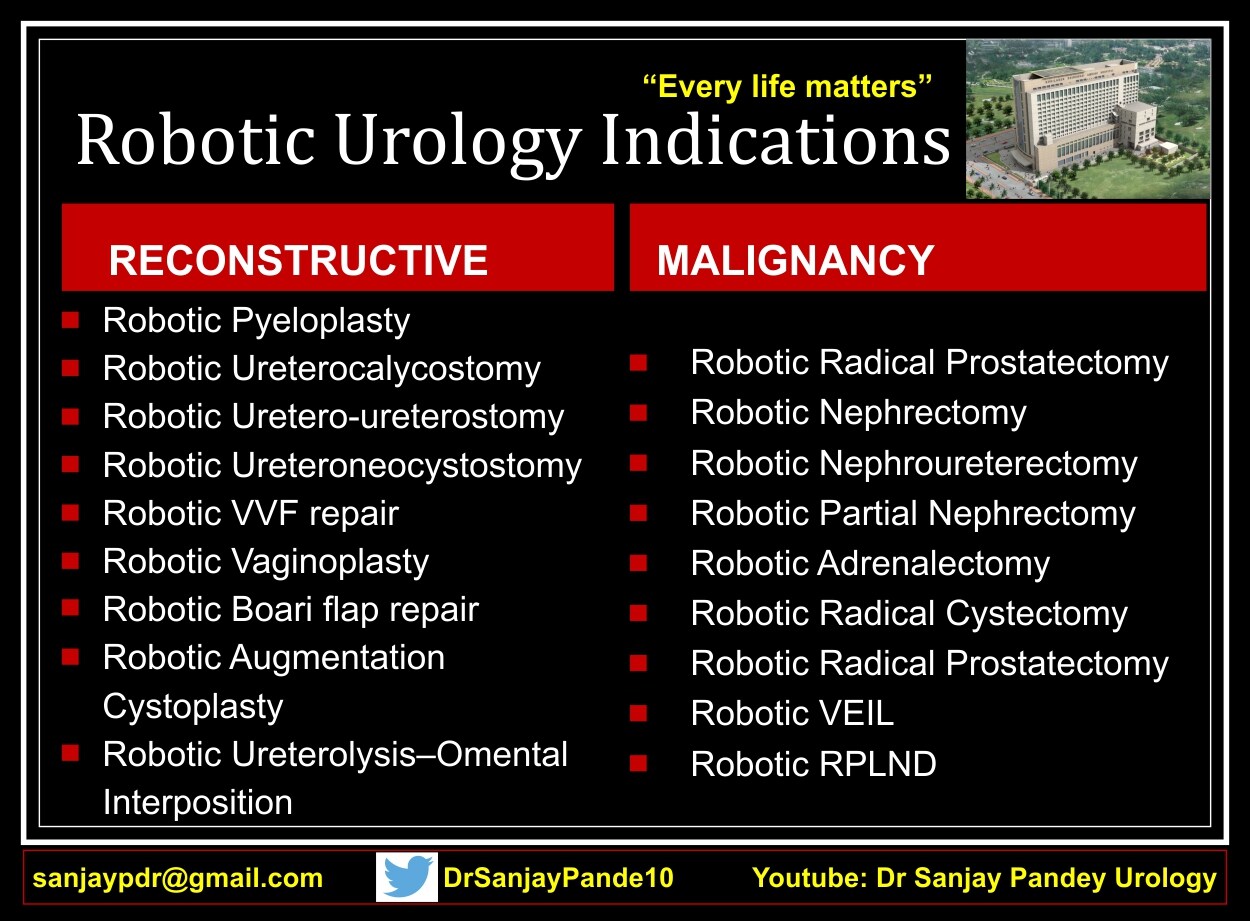
The Boon of Robotic Surgery in Healthcare and Future of Urology
Dr Sanjay Pandey, M.S., M.CH (Urology), D.N.B. (Urology), Head — Andrology & Reconstructive Urology, Consultant Robotic Urology & Gender Reassignment Surgery, Kokilaben Dhirubhai Ambani Hospital, Mumbai

Robotics made a steady revolution towards pinnacle of minimally invasive surgery over the last decade… the innovations of modern healthcare in urology have been a mammoth leap in care and cure of diseases. Few perspectives for one and all in the society…
Today's medical robots have gone through sea change and are designed for entirely different environments and tasks—those that involve direct interaction with human users in the surgical theatre to rehabilitation centre. Technological advances in robotics have the potential to stimulate the development of new treatments for a wide variety of diseases and disorders, improve both the standard and accessibility of care, and enhance patients' health outcomes. While modern healthcare revolves around minimal access and improved recovery and enhanced outcomes, robots have brought about the much needed transformation in every aspect of minimally invasive surgery in urology, cancer, gynecology, surgery helping reach and operate most daunting body locations of most challenging diseases, its fast becoming an integral part of care in rehabilitation by use of them and understanding the cognitive effects integrating artificial intelligence towards accuracy and safety. We could be stepping into the era where open surgery and long incisions cud be of bygone era by use of robots in right proportions at pivotal healthcare junctions getting entrenched into the system. The machine has thus taken a leap towards fulfilling the extra steps and addressing gaps that was just outside the realm of human hands, for example, the 360 degrees rotation in all dimensions. Imagine yourself working with two right hands!! The Da Vinci's XI is akin to be working with “two right hands” and the leap that leads to efficiency on one aspect and unprecedented precision. I use the robot as a minimally invasive technology in operating Adrenal, Kidney, Ureter, Urinary Bladder and Prostate cancers and the reconstructive urology segment—a niche area at the Kokilaben Dhirubhai Ambani Hospital in Andheri, Mumbai, India where we are gifted with both the versatile generations of Da Vinci Robots Si and Xi under one roof.
Digital Technology as Healthcare Trends will Change the Patient Experience As Well As the Healthcare Industry in the Coming Years?
Digital platform and advancements in technology has placed healthcare to a transformed pedestal for both providers and patients. Being able to reach precisely for the most complex of diseases to the teams is going to happen better and the trend thus of faster presentations of patients from the era of neglect and spread diseases is set to change completely. A more well informed patient by digital information is better informed thus transforming the society and in years to come; with proactive patient the demand for many incidental diseases and early picked up issues by health checkup bring patients closer to doctors and that experience may be a harbinger to diagnosis of early diseases. Digital platform of blogs, podcasts is already information sharing on A to Z of diseases, results and holistic management methods for the patients while health personnel in the quest to provide the best, aim to gear to the highest level with information sharing, equipping oneself with the state of art on all aspects of evaluation and treatment of both life threatening diseases and much neglected quality of life diseases like incontinence, erectile dysfunction and gender dysphoria that were attached with stigma and taboo. The telemedicine reach of global patients cutting across geographic boundaries is an absolute find that was only conceptualized and attempted till it catapulted in the present times. I see approximately 40-55 patients weekly on the online platform for various urology and andrology disease that takes health to the homes and stimulates society towards early and continued care.





